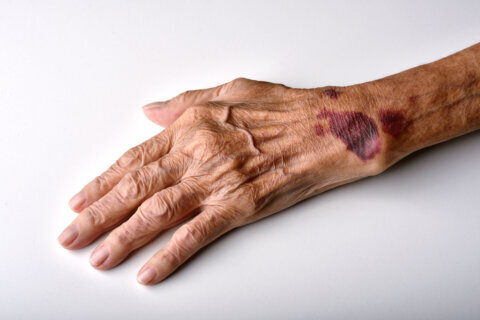This content is sponsored by MedStar Washington Hospital Center.
In May, the World Health Organization (WHO) warned against using non-sugar sweeteners to lose weight or reduce the risk of noncommunicable diseases. The organization said evidence showed that consumption of sweeteners like Splenda and stevia doesn’t carry any long-term benefits in weight management and could pose a health risk.
However, Megan Ramaika, a registered dietician with MedStar Health, said these guidelines don’t necessarily apply to people with pre-existing conditions such as diabetes. In the U.S., where diabetes and obesity are more common than in other countries, cutting out non-sugar sweeteners could be problematic.
“The studies completely excluded anybody with diabetes, which is a huge demographic in the United States. And this is where we really do have a lot of strong evidence supporting the use of non-nutritive sweeteners,” she said.
According to the Centers for Disease Control and Prevention, 38% of adults have pre-diabetes, and 11% know they have diabetes– a chronic condition that happens when your blood sugar (glucose) is too high. Ramaika said for these people, non-sugar sweeteners can be beneficial.
“I think it’s a good opportunity to only show the significance of why we can’t take blanket recommendations from organizations, particularly when we’re looking worldwide– this is not just for the American population,” she said.
Non-sugar sweeteners have no effect on your blood sugar, and an individual with diabetes who’s constantly drinking sugary drinks could achieve glucose goals after making the transition. Ramaika said she’s seen firsthand improvements in the blood sugar levels of patients who have made the switch.
“We see that time and time again, with individuals losing weight as well as individuals trying to control glycemic factors,” she said. “They make that one small change, and that significant impact on those metrics is unfathomable,” Ramaika said.
For individuals trying to manage or lose weight, non-sugar sweeteners can also be helpful because they reduce calories.
“The metabolism of these products, they’re so quickly through our system. So these are not forever plastics that we’re eating, this is something that’s being utilized and then excreted out.”
Some studies show that replacing a regular sugar-sweetened beverage with a non-sugar-sweetened drink could reduce caloric intake by upwards of 500 calories, according to Ramaika. This also allows room for other more nutritious foods to be consumed.
“It’s easy to chug that liter of cola, but it’s going to not create the same type of sensation that we could be potentially utilizing that with more food-based items,” she said.
Being overweight or obese can increase a person’s chances of heart disease, cancer, and diabetes. Ramaika said this is why individuals with these conditions should maximize any opportunity that supports weight loss.
Everyone’s health is unique and the guidelines also give people the opportunity to think about their individual health.
“It’s an opportunity to really help our long-term health outcomes,” Ramaika said. “It really shows that you need to sit down and talk to somebody who can kind of weed through all of this with you.”
If you’re trying to manage your weight or diabetes, your diet will likely look different than someone who is not focused on these conditions through dietary restrictions.
“Take your philosophies for your health. If you’re somebody who does want to stay away from processed foods, how do we look at your overall diet quality and improve it?”
Before getting rid of your artificial sweeteners, keep in mind that WHO’s guidelines are unaware of your medical history and dietary goals.
“It just pushes people to say you can’t just take everything straight off the streets and start to apply it to your health,” Ramaika said. “Having that conversation and the dialogue between your health care providers– be it your primary or another registered dietitian– I think that’s very important.”
Also remember that non-sugar sweeteners give you a chance to continue enjoying your favorite foods and drinks with modifications.
“With the development of artificial sweeteners, it’s really helped our population and the food environment offer alternatives to help support still having a very deliciously sweetened food product,” Ramaika said. “And then that helps with reduction of total energy and specifically sugar energy that we’re consuming, which we know has that negative effect to it. So I think there’s definitely a place for it.”
Read more about non-sugar sweeteners in a post by Ramaika on the MedStar Washington Hospital Center website.







